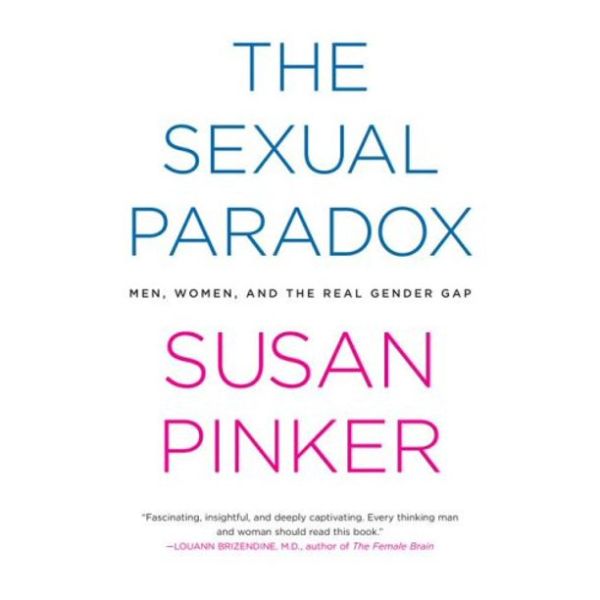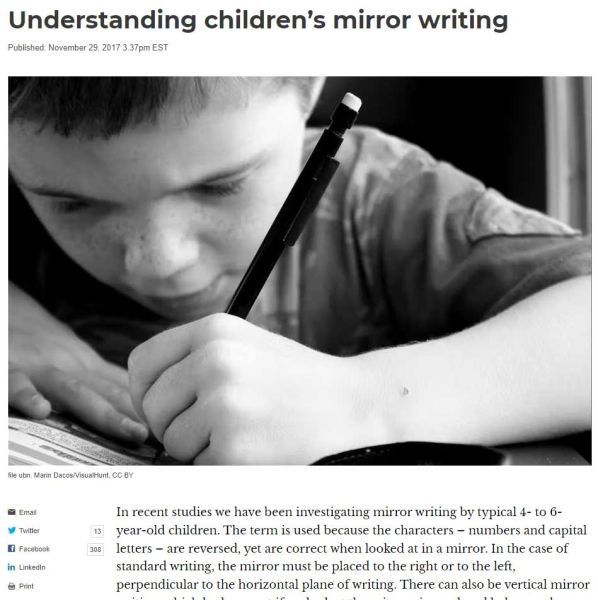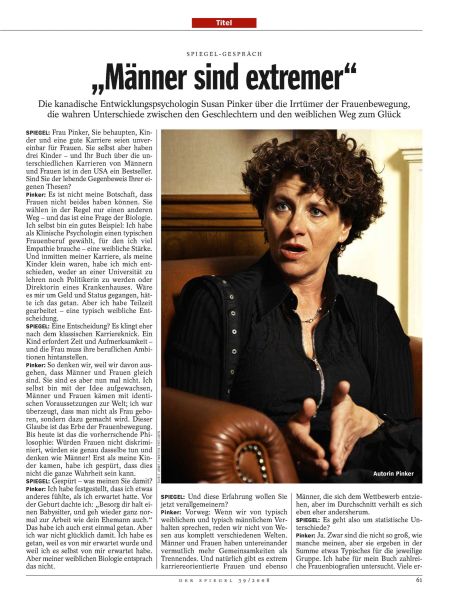Susan Pinker, Author of Sexual Paradox
Susan Pinker-the author of Sexual Paradox
One day, years ago, during a visit with my parents, they showed me a long thank-you letter written to them by their five-year-old granddaughter, my brother's child. Lo and behold, she had written it backwards! I literally had to hold the letter in front of a mirror to read it. I could hardly believe my eyes!
Then, my father reached into his file-cabinet, that held all our personal childhood information, and drew out my first-grade report-card from school. The card read, "Lloyd is definitely left-handed and has a tendency toward mirror-writing." My teacher's use of the word "definitely" made me feel like "one of those crazy left-handers." So I had the same glitch my brother's child had. We both outgrew it, of course. But I realized for the first time that I was dyslexic, and it stunned me.
"Why didn't y'all ever tell me that I was dyslexic?" I asked them. I was a terrible student all through school, and it was humiliating to do so badly on tests. I just thought I was too stupid to do the work. It made me angry that they had kept this information from me for so long.
They answered, "We didn't want you to think of yourself as different from everybody." It means, I guess, that they didn't want to risk my becoming an outsider. I should also mention that my brother's daughter is left-handed. The mirror-writing, however, never had any long-termed effect on her, just on me.
Fortunately for me, I had parents who cared about me, and they kept our home full of books, that I eventually became interested in. I also haunted the local library, which was just down the hill from our home. The librarians got to know me well from my visits, and because my father visited it once a week to catch up on all the business magazines.
In time, intellectual curiosity overcame my learning disability. I have sort of haunted libraries ever since, and accumulated my own library. I also reconnected with my former first-grade teacher who had written up my tendency toward "mirror-writing." She was born in Germany and helped teach me how to speak her language. None of us kids in her first-grade class ever noticed that she spoke with an accent. We simply adopted it as our own.
Susan Pinker published an interesting book on learning disabilities in 2008, titled Sexual Paradox. I learned about her from an interview in the German news magazine Der Spiegel. Pinker discusses learning disabilities in her book, which I found personally interesting. Working as a psychologist for the public school system in Canada, she counseled numerous students with learning disabilities, nearly all of them male, and gained some insight on the subject.
When I read the book, I had only just started a new career as a writer and had published a novel in 2007. Starting around page 52 and reaching into page 55, Pinker talks about dyslexia, based on her interviews with people, mostly men, afflicted with it. One person went as far as to say that "Being dyslexic is a gift because you think less linearly."
Another person Pinker interviewed said that "Factors related to dyslexia might allow people to see systems or patterns where others might see an accumulation of unrelated bits and pieces." Another person said that the "weak link" in the dyslexic person's brain-functioning "confers a compensating advantage."
This information seriously elated me, even though I already knew it from experiences in the work-place. I could do things other people could not. To read that she had interviewed successful people with dyslexia gave me a shot of self-confidence I had not received anywhere else.



